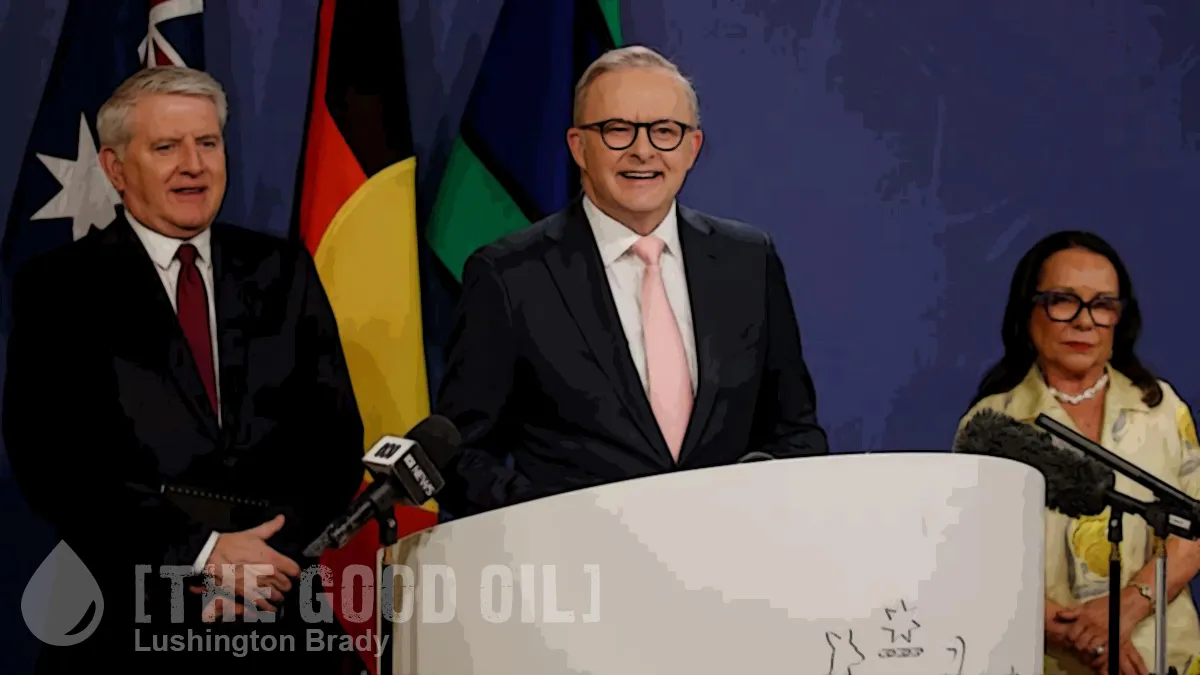Table of Contents
Just a routine cabinet reshuffle, or the first wave of rats bailing while the bailing’s good? Although a federal election is not due in Australia until next year, there was plenty of whispering recently that PM Anthony Albanese might pull the trigger on an early election. The mooted trigger was a possible second rejection of the government’s $10 billion cash splash Housing Australia Future Fund bill. The government must wait three months to table the bill again (i.e., in mid-September): if it’s rejected a second time, the PM has the option (but not the obligation) to call a double-dissolution election.
But all that was before the latest opinion polls, which show both the government and the PM sliding behind their opponents. There seems little prospect of the government reviving its fortunes any time soon, either: since the humiliation of Albanese’s flagship Voice referendum, all of the PM’s vote-buying initiatives have been met with a wall of indifference from voters.
The resounding defeat of the referendum, as well as months of intractable Aboriginal youth crime mayhem in Alice Springs, also put a marker on Indigenous Australians Minister Linda Burney. The ‘Gucci Minister’ has finally accepted her fate.
Anthony Albanese has defended his government's record on Indigenous affairs after the loss of the voice referendum.
The failure of the referendum in October sparked questions over the future of Indigenous Australians Minister Linda Burney, who has today officially announced her retirement.
The Prime Minister said Ms Burney had “a lifetime of achievement”.
At what, besides enriching herself? voters are entitled to ask. Burney has spent a lifetime on the taxpayer dime, from public school teacher, to education bureaucrat, to politics. What has she actually achieved for Aboriginal Australians? If results on the ground are any indicator, Burney has signally failed. When Alice Springs was plunged into curfew by an endemic crisis in Aboriginal lawlessness, Burney took days to even respond and weeks to (briefly) visit the crime-besieged city.
Albanese is, of course, putting the best spin he can on what is likely the first wave of desertions of career lackeys. Skills Minister Brendan O’Connor is another Labor careerist who’s never worked a day outside of a union or politics job in his adult life.
The Prime Minister said on Thursday both Ms Burney and Mr O’Connor had made “an outstanding contribution” to his government, who had a “passion for the nation”.
“In recent times, I’ve had discussions with Linda and Brendan about their future and they have informed me that they have decided to not contest the next election as (the) member for Barton and the member for Gorton,” he said.
“As a result of that they have also made the decision to step down from the ministry to enable a refresh and enable some new ministers to be able to take their place and take us forward over the coming months before the election, which is due in 2025. This provides an opportunity to refresh the frontbench.”
A new ministerial line up with be announced on Sunday.
Another Labor careerist Australia would be well shot of is Penny Wong. Like the rest of parliamentary Labor, Wong has never held a job outside union/politics (she was initially accepted into a surgery program at university, but decided she couldn’t stand the sight of blood and switched to the standard lefty politician career path, Arts/Law). A hardcore far-leftist (she is a former member of a committee of the Trotskyite Socialist Worker’s Party), Wong is naturally pro-Hamas, anti-Israel.
The Albanese government has slapped financial sanctions and travel bans on seven Israeli settlers and a Jewish youth group “for involvement in settler violence against Palestinians in the West Bank”.
This, at the same time she rewards Hamas by pushing for ‘Palestinian’ recognition.
As well, the opposition was quick to point out, while Wong couldn’t wait to use Australia’s Magnitsky sanctions framework against Israel, she has steadfastly refused to similarly sanction Chinese officials for “serious human rights abuses in Xinjiang nor any of the repeated cyber attacks on our democratic institutions, government departments or critical infrastructure”.
The Albanese government is making quite clear who it sides with.





